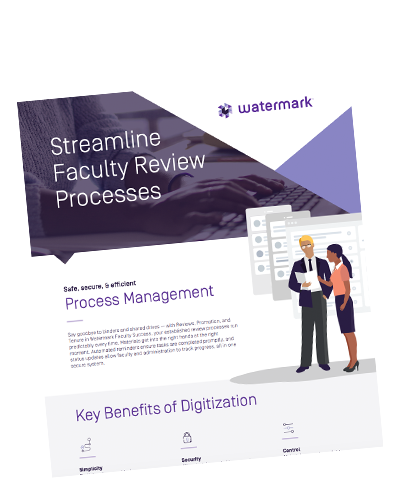


 Review your self-study and identify areas where peer reviewers will likely wish to learn more.
Review your self-study and identify areas where peer reviewers will likely wish to learn more.“Sometimes institutions will want you to talk with the senior leadership folks, but for me to talk with the provost is not going to be as beneficial as talking with the person who’s in the weeds doing the work. For me, it’s better to have two hours with two faculty groups than it is to have an hour with faculty and an hour with a senior leader when the senior leader really isn’t adding anything to the discussion.”
Jacob Ashby, Assistant Dean of Assessment and Articulation
Frederick Community College
Showcase your unique campus and culture
“People are afraid to admit issues. They want to paint a rosy picture. But it’s much better to tell the truth, and share the ups and downs. Tell us that your enrollment is down and what you’re doing to increase it. It’s much better to hear it from you rather than digging into it and finding it ourselves, and not seeing a plan for improvement.”
Kathy Adair, Director of Development and Assessment
Bay Mills Community College

“The people on these peer review panels are folks who have lots of experience, who have experienced not only triumphs, but also failures, so they know where you are, they know where you’re coming from. They are there to lift you up.”
Cheryl Torsney, Vice Provost for Faculty Affairs
Middle Tennessee State University
Kathy Adair, Director of Development and Assessment, Bay Mills Community College
Jacob Ashby, Assistant Dean of Assessment and Articulation, Frederick Community College
Michele Atkins, Assistant Provost for Accreditation and Research, Union University
Summer DeProw, Interim Assistant Vice Chancellor for Academic Affairs, Director of Assessment,
Arkansas State University
Jerry Edmonds, Senior Assistant Provost of Academic Affairs, Syracuse University
Sharon Enzor, Provost and Vice President, Blue Mountain College
Jan Hirt, AVP Academic Affairs, Greenville Technical College
Cheryl Torsney, Vice Provost for Faculty Affairs, Middle Tennessee State University

See how our tools are helping clients right now, get in-depth information on topics that matter, and stay up-to-date on trends in higher ed.